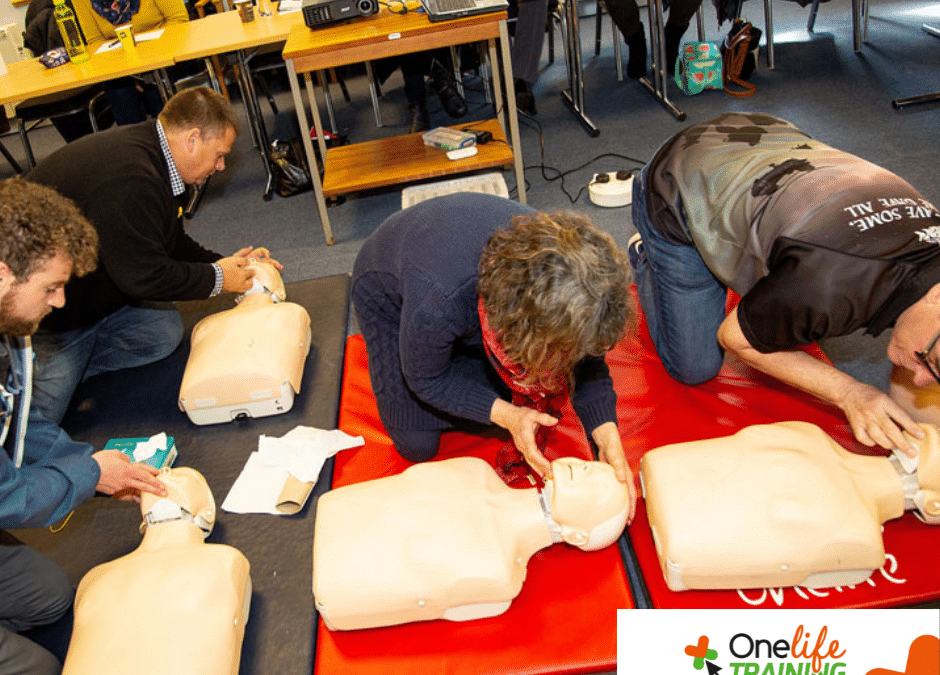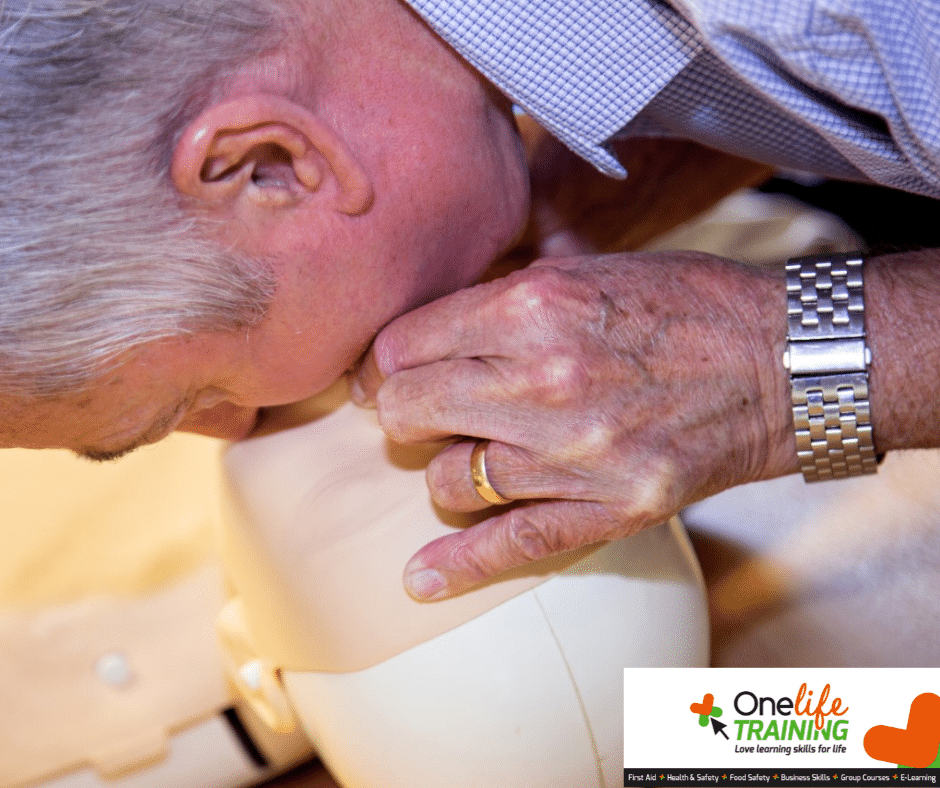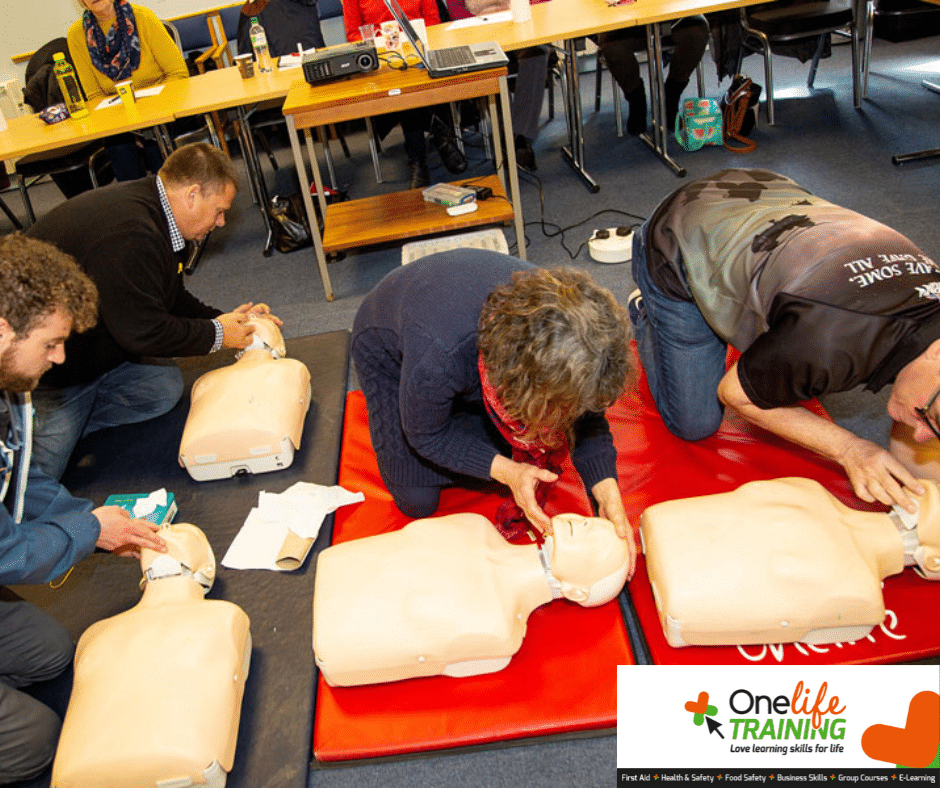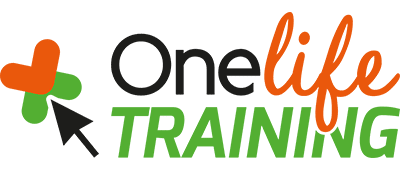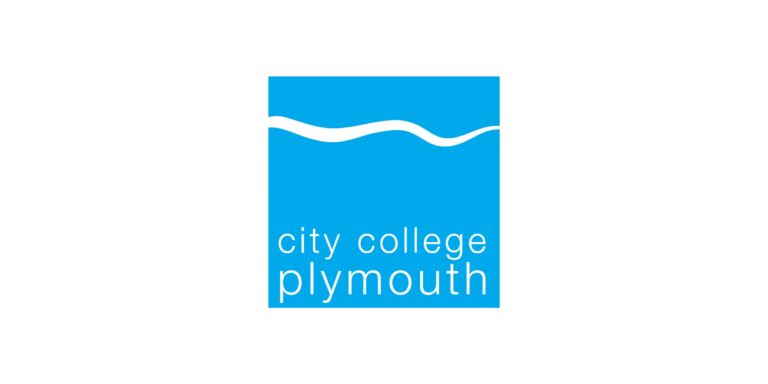Top First Aid Skills Everyone Should Know
By Carole Johnson – OneLife Training (Gold Member)
Being equipped with basic first aid skills is invaluable in various situations, from minor accidents at home to more serious emergencies in everyday life. Here are some essential first aid skills that everyone should know:
1. CPR (Cardiopulmonary Resuscitation): CPR is a life-saving technique used to revive someone whose heart has stopped beating. Learning how to perform CPR correctly can make a significant difference in improving the chances of survival for someone experiencing cardiac arrest.
2. Choking relief: Knowing how to assist someone who is choking can prevent a potentially fatal situation. Techniques such as the Heimlich manoeuvre for adults and back blows and chest thrusts for infants can dislodge an obstructed airway and restore breathing.
3. Managing bleeding: Understanding how to control bleeding effectively is crucial in preventing excessive blood loss and promoting healing. Techniques such as applying direct pressure, elevating the injured limb, and using bandages or dressings can help staunch bleeding until medical help arrives.
4. Treating burns: Knowing how to provide first aid for burns can minimise tissue damage and alleviate pain. Immediate cooling of the burn with cold running water for a minimum of 20 minutes, then lightly covering it with cling film or a non-fibre sterile dressing, are essential steps in burn care. For burns larger than the casualty’s hand, it is crucial to seek medical advice.
5. Recognising stroke symptoms: Being able to recognise the signs of a stroke and act quickly can save lives. Remembering the acronym FAST (Face drooping, Arm weakness, Speech difficulty, Time to call emergency services) can help identify stroke symptoms and prompt timely intervention.
6. Dealing with fractures and sprains: Understanding how to stabilise and support a suspected fracture or sprain can prevent further injury and promote recovery. Immobilising the injured limb with a splint, applying ice packs to reduce swelling, and seeking medical attention for severe fractures are key steps in managing musculoskeletal injuries.
7. Managing shock: Shock is a life-threatening condition that occurs when the body’s vital organs are not receiving enough blood flow. Knowing how to recognise the signs of shock, such as pale skin, rapid pulse, and shallow breathing, and taking steps to maintain the person’s body temperature and elevate their legs can help stabilise their condition until medical help arrives.
By learning and practicing these essential first aid skills, individuals can be better prepared to respond confidently and effectively in emergencies, potentially saving lives and reducing the severity of injuries. Investing in first aid training is a proactive step towards promoting safety and well-being.
About OneLife Training
Onelife Training UK Ltd based in Exeter, Devon offer fun and enjoyable First Aid & Health & Safety Training with an important message.
Our courses are run from our Open Public Courses area in Marsh Barton, Exeter, Devon. If you are booking a large group booking then Onelife Training can travel and supply Devon First Aid Training at your location! If you are interested in booking please get in touch with Carole.
Email: [email protected]
Phone: 01392 420004

